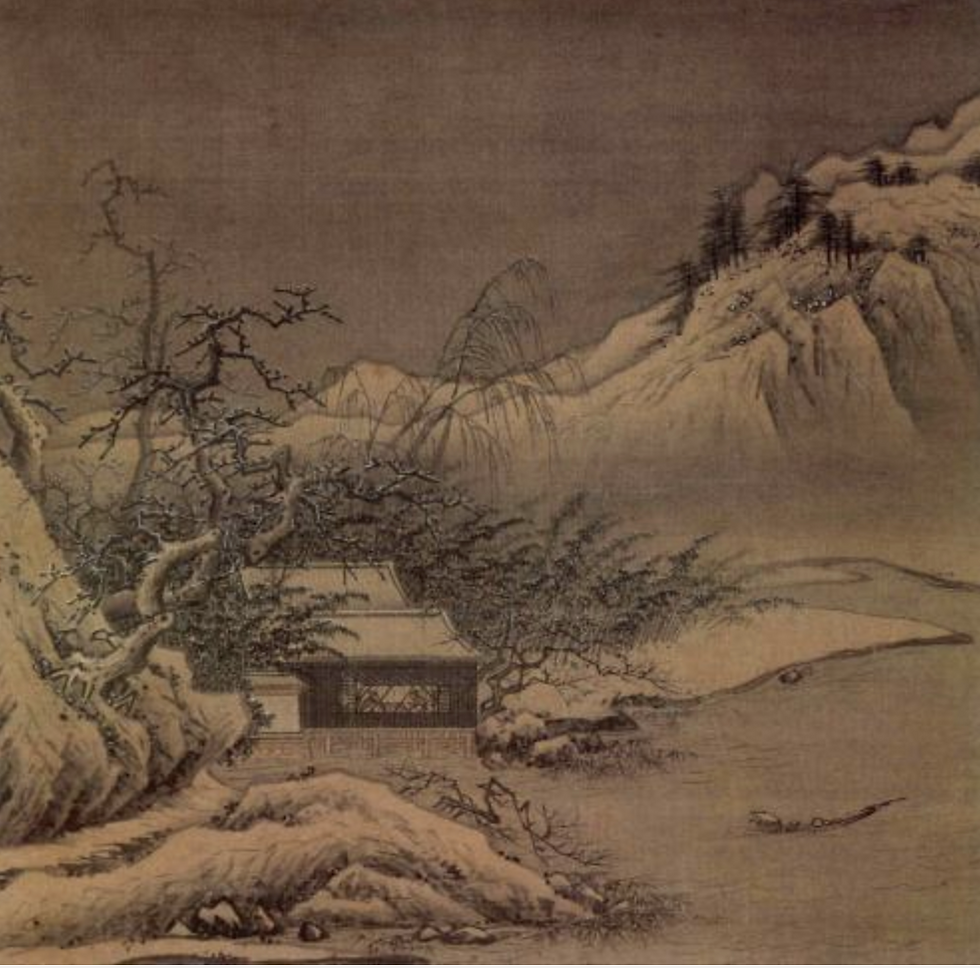定风波·常羡人间琢玉郎 I often admire my friend Dingguo
- Julia Min
- Jan 29, 2024
- 2 min read
Updated: Feb 14, 2024
定风波·常羡人间琢玉郎
(王定国歌儿曰柔奴,姓宇文氏,眉目娟丽,善应对,家世住京师。定国南迁归,余问柔:“广南风土, 应是不好?”柔对曰:“此心安处,便是吾乡。”因为缀词云。)
原作: 苏轼(字子瞻, 号东坡居士; 11世纪北宋)
英译: 闵晓红(2024.01)
常羡人间琢玉郎,
天应乞与点酥娘。
尽道清歌传皓齿,
风起,
雪飞炎海变清凉。
万里归来年愈少
微笑,
笑时犹带岭梅香。
试问岭南应不好,
却道:
此心安处是吾乡。
I often admire my friend Dingguo
-to the tune “Pacify the Turbulence”
(My friend Dingguo Wang has a concubine in the name of Rounu Yuwen. She used to be a singing girl with attractive appearance and remarkable eloquence. When Dingguo was banished to Hainan, she decided to go with him, leaving her hometown, the capital city. I asked her: “Life in the south of Guangdong must be very hard?” She answered: “ My home is where my heart can find peace.” Thus I composed this ci poem.)
Chinese original: Su Shi (11th AC, social name 'Dongpo')
English translation: Julia Min (Jan. 2024)
I often admire my friend
who shines with beauty and brain, and
also blessed with a charming wife by his side.
She has the softest voice of a legend singer,
Like a cool breeze on the snow field,
Soothing a heart in a scorching summer.
Their life at Hainan should be just as hard,
yet the hardship failed to make a mark.
She’s back with a younger smile and a sweet scent,
A faint fragrance from the island’s plum blossoms.
How could it be? She answered at ease:
“My home is where my heart can find peace.”

Appreciation:
Wang Gong (王巩,social name: Dingguo 定国) had now finished his banishment life in Hainan Island, the south of Guangdong Province. His concubine Rounu, like Dongpo’s concubine Zhaoyun, shared the hard life in the desolate south of Guangdong then. She was not only good at dancing and singing but also a good doctor, an influence from her father and her father’s peer friend who kindly took the young girl in as a disciple after her father was prisoned due to an evil setup.
It was likely the end of 1085 when this ci was composed. Su Shi was then arrived at the capital from Huangzhou. It could be a friend’s party celebrating their returns, or rather, a return of the old party members to the Royal Court.
This little poem is one of Su Shi’s best-known works owing to the last line, which is not Su Shi’s creation but a quote of Rounu’s original words. It has become a popular saying in dictionaries and also made Dingguo and Rounu live in poetry for over a thousand years. Similar theme is often touched in western world, such as the British top pop hit in the 1989 “ Blue Savannah” (… My home is where the heart is / Sweet to surrender…”
Reference:
picture from 《希望之声》



Comments